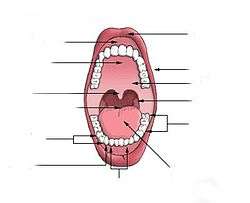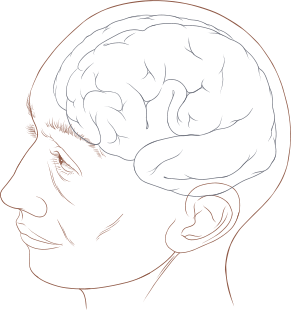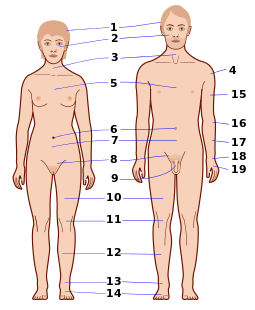Definify.com
Webster 1913 Edition
Mute
Mute
Mute
,Mute
,Mute
,And silence was in heaven.
But, like
Gazed each on other.
Pondering the danger with deep thoughts.
Mute
,Webster 1828 Edition
Mute
MUTE
,MUTE
,MUTE
,MUTE
,Definition 2026
Mute
mute
mute
English
Adjective
mute (comparative muter, superlative mutest)
- Not having the power of speech; dumb. [from 15th c.]
- Ovid: Metamorphoses, translated by John Dryden [17th c.]
- Thus, while the mute creation downward bend / Their sight, and to their earthly mother tend, / Man looks aloft; and with erected eyes / Beholds his own hereditary skies. / From such rude principles our form began; / And earth was metamorphos'd into Man.
- Ovid: Metamorphoses, translated by John Dryden [17th c.]
- Silent; not making a sound. [from 15th c.]
- Milton
- All the heavenly choir stood mute, / And silence was in heaven.
- 1956, Ernst Kaiser and Eithne Wilkins (?, translators), Lion Feuchtwanger (German author), Raquel: The Jewess of Toledo (translation of Die Jüdin von Toledo), Messner, page 178:
- “ […] The heathens have broken into Thy Temple, and Thou art silent! Esau mocks Thy Children, and Thou remainest mute! Show thyself, arise, and let Thy Voice resound, Thou mutest among all the mute!”
- Milton
- Not uttered; unpronounced; silent; also, produced by complete closure of the mouth organs which interrupt the passage of breath; said of certain letters.
- Not giving a ringing sound when struck; said of a metal.
Derived terms
Translations
|
|
Noun
mute (plural mutes)
- (phonetics, now historical) A stopped consonant; a stop. [from 16th c.]
- (obsolete, theater) An actor who does not speak; a mime performer. [16th-19th c.]
- 1668 OF Dramatick Poesie, AN ESSAY. By JOHN DRYDEN Esq; (John Dryden)
- As for the poor honest Maid, whom all the Story is built upon, and who ought to be one of the principal Actors in the Play, she is commonly a Mute in it:
- 1668 OF Dramatick Poesie, AN ESSAY. By JOHN DRYDEN Esq; (John Dryden)
- A person who does not have the power of speech. [from 17th c.]
- A hired mourner at a funeral; an undertaker's assistant. [from 18th c.]
- 1950, Mervyn Peake, Gormenghast
- The little box was eventually carried in one hand by the leading mute, while his colleague, with a finger placed on the lid, to prevent it from swaying, walked to one side and a little to the rear.
- 1978, Lawrence Durrell, Livia, Faber & Faber 1992 (Avignon Quintet), p. 481:
- Then followed a long silence during which the mute turned to them and said, ‘Of course you'll be wanting an urn, sir?’
- 1950, Mervyn Peake, Gormenghast
- (music) An object for dulling the sound of an instrument, especially a brass instrument, or damper for pianoforte; a sordine. [from 18th c.]
Translations
|
Verb
mute (third-person singular simple present mutes, present participle muting, simple past and past participle muted)
- (transitive) To silence, to make quiet.
- (transitive) To turn off the sound of.
- Please mute the music while I make a call.
Derived terms
Translations
See also
Etymology 2
From Middle French muetir, probably a shortened form of esmeutir, ultimately from Proto-Germanic.
Verb
mute (third-person singular simple present mutes, present participle muting, simple past and past participle muted)
- (now rare) Of a bird: to defecate. [from 15th c.]
- 1946, George Orwell, Animal Farm, Signet Classics, pages 40–41:
- All the pigeons, to the number of thirty-five, flew to and fro over the men's heads and muted upon them from mid-air;...
- (Can we find and add a quotation of Ben Jonson to this entry?)
- 1946, George Orwell, Animal Farm, Signet Classics, pages 40–41:
Noun
mute (plural mutes)
Translations
Etymology 3
Verb
mute (third-person singular simple present mutes, present participle muting, simple past and past participle muted)
French
Verb
mute
- first-person singular present indicative of muter
- third-person singular present indicative of muter
- first-person singular present subjunctive of muter
- first-person singular present subjunctive of muter
- second-person singular imperative of muter
Anagrams
Latvian

| Picture dictionary | |||
|---|---|---|---|
| |||
|
Etymology
From Proto-Indo-European *mnt-, *ment- (“to chew; jaw, mouth”). Cognate with Latin mentum (“chin”) and mandō (“to chew”), Ancient Greek μάσταξ (mástax, “jaws, mouth”) and μασάομαι (masáomai, “to chew”), Welsh mant (“jawbone”), Hittite mēni (“chin”), Proto-Germanic *munþaz (“mouth”) (English mouth, German Mund, Dutch mond, Swedish mun, Icelandic munnur, Gothic 𐌼𐌿𐌽𐌸𐍃 (munþs)).
Pronunciation
- IPA(key): [mutɛ]
Noun
mute f (5th declension)
- (anatomy) mouth (orifice for ingesting food)
- mutes orgāni — mouth organs
- aizvērt muti ― to close one's mouth
- plātīt muti ― to keep one's mouth open, to gape
- turēt mutē konfekti ― to have candy in one's mouth
- mutes kaktiņi ― corners of the mouth
- mutes harmonikas ― harmonica (musical instrument)
- orifice, opening, entrance
- krāsns mute ― the mouth of the oven
- face
- mazgāt muti ― to wash one's mouth (= face)
- bērni ar netīrām mutēm ― children with dirty mouths (= faces)
- kiss
- dot mutes ― to give mouths (= kisses)
Declension
Derived terms
Spanish
Verb
mute


